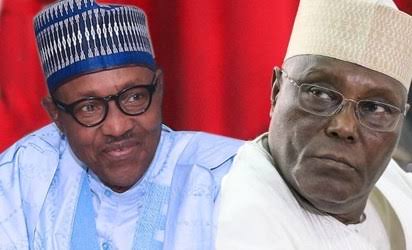The Supreme Court on Wednesday delivered its first ruling against the Peoples Democratic Party and its presidential candidate, Alhaji Atiku Abubakar.
The Supreme Court on Wednesday delivered its first ruling against the Peoples Democratic Party and its presidential candidate, Alhaji Atiku Abubakar. Atiku and his party are before the apex court to challenge the victory of President Muhammadu Buhari at the February 23, 2019 poll.
The Chief Justice of Nigeria, Justice Tanko Muhammad leads the seven-man panel to hear the appeals in respect of the case instituted by the Peoples Democratic Party and its presidential candidate, Atiku Abubakar, to challenge the victory of President Muhammadu Buhari at the February 23, 2019 poll.
Other members of the panel are Justices Bode Rhodes-Vivour, Kayode Ariwoola, John Okoro, Amiru Sanusi, Ejembi Eko and Uwani Abba-Ajji.
Atiku and his party had jointly filed their appeal before the apex court to challenge the September 11, 2019 judgment of the Justice Mohammed Garba-led Presidential Election Petition Tribunal. The tribunal’s judgment which Atiku and his party are dissatisfied with had dismissed their petition challenging the outcome of the February 23, 2019 poll.
Subsequently, the petitioners on September 23, 2019, filed 66 grounds of appeal before the Supreme Court to challenge the judgment of the tribunal. They prayed the Supreme Court to nullify Buhari’s victory and either order that Atiku be declared as the valid winner of the poll or order the Independent National Electoral Commission to conduct a fresh presidential election.
In the lead ruling consented to by other members, the CJN overruled Atiku and his party’s request that their seven interlocutory appeals should be heard after the main one must have been argued. The seven-man panel held that it would be unnecessary to hear the interlocutory appeals when a judgment on the main appeal marked SC.1211/2019 would cover the field.
